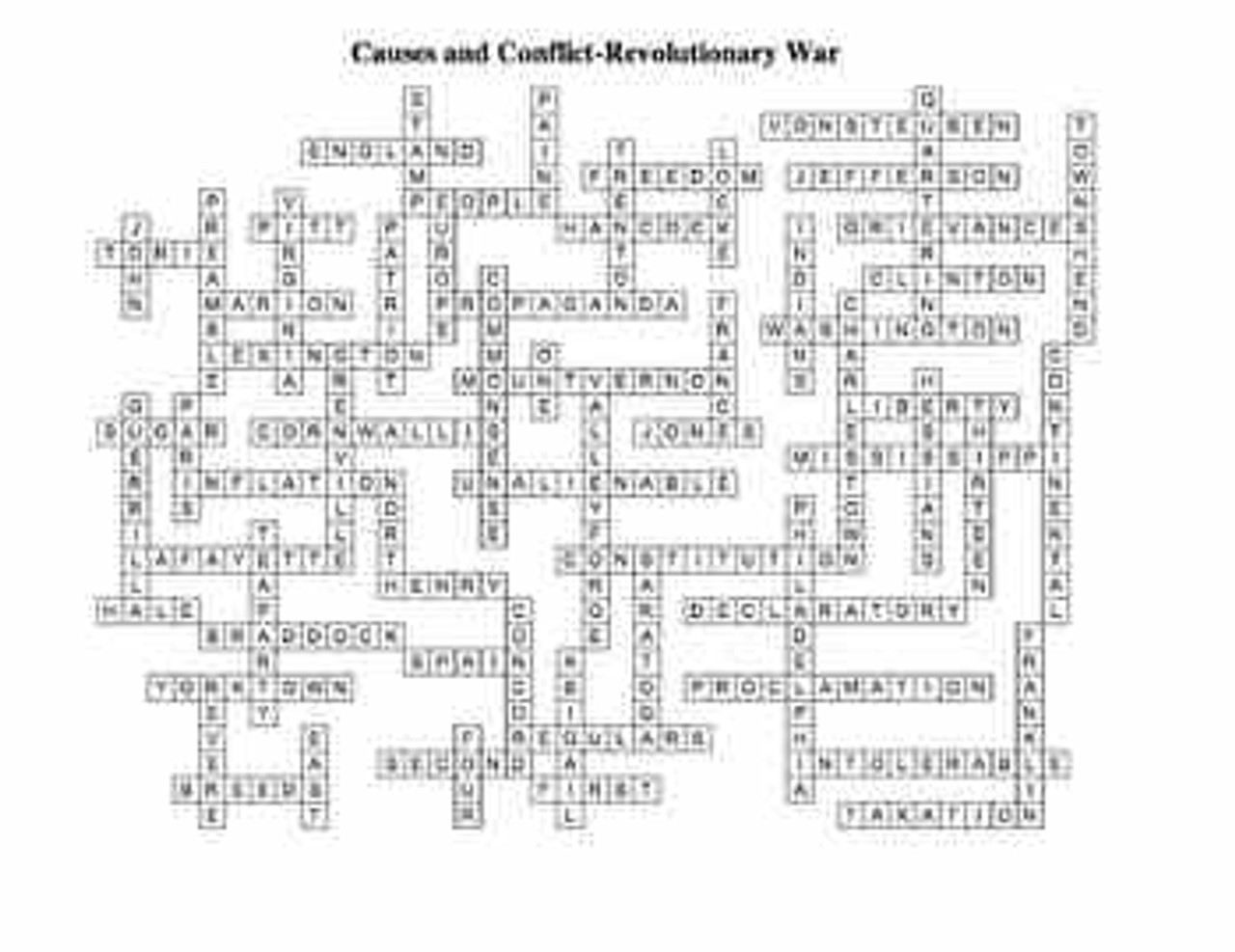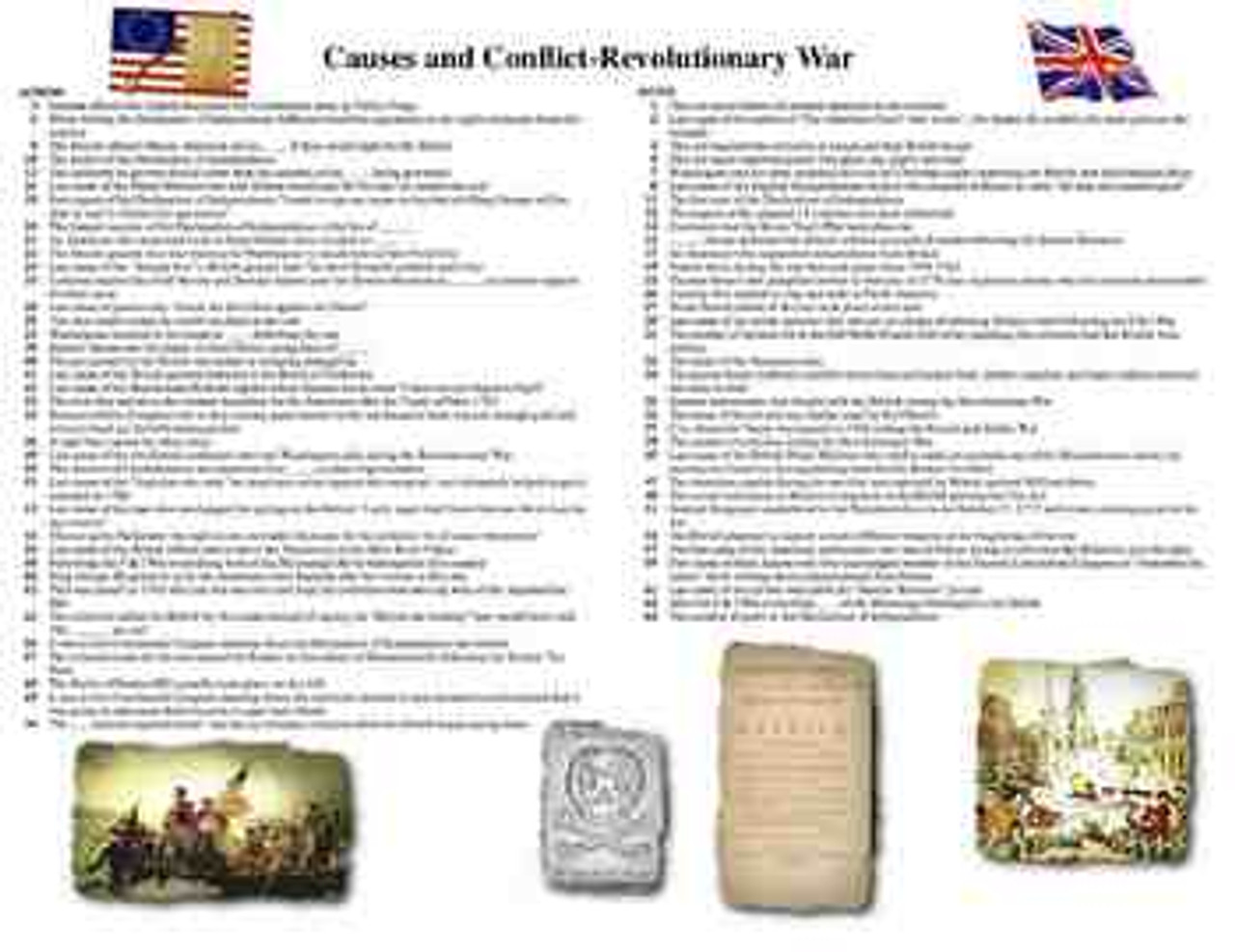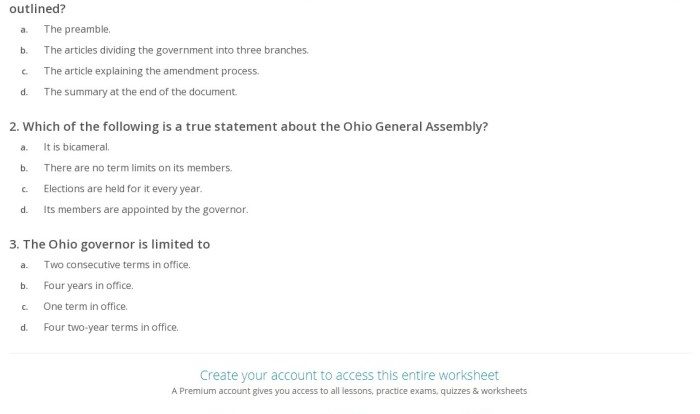The “Causes and Conflict-Revolutionary War Crossword” sets the stage for an enthralling narrative, offering readers a glimpse into a story that is rich in detail and brimming with originality from the outset. This crossword puzzle delves into the historical, ideological, and military aspects of the American Revolutionary War, providing a comprehensive understanding of the factors that led to the conflict and its profound impact on the United States.
The puzzle explores the economic, political, and social grievances that fueled the colonists’ dissatisfaction with British rule, as well as the Enlightenment ideas that influenced their desire for independence. It examines the key battles and events of the war, providing a timeline and map to illustrate the geographic scope of the conflict.
Additionally, the crossword analyzes the war’s impact on the United States, discussing its short-term and long-term consequences on the nation’s political, economic, and social development.
Historical Causes of the Revolutionary War

The Revolutionary War, a pivotal conflict in American history, was sparked by a confluence of economic, political, and social factors that ignited tensions between the British government and the American colonies.
Economic Factors
- Mercantilism, Britain’s economic policy, restricted colonial trade and manufacturing, limiting economic opportunities for colonists.
- Navigation Acts, imposed by Parliament, controlled colonial trade and commerce, leading to resentment among colonists.
- Heavy taxation, such as the Stamp Act and the Townshend Acts, without representation in Parliament, caused widespread dissatisfaction.
Political Grievances
- Lack of colonial representation in Parliament denied colonists a voice in matters affecting their lives.
- British policies, such as the Quartering Act, forced colonists to house and provide for British soldiers, violating their privacy and property rights.
- Coercive Acts, a series of punitive measures imposed after the Boston Tea Party, further escalated tensions.
Social and Cultural Differences, Causes and conflict-revolutionary war crossword
- Colonists had developed a distinct American identity, influenced by their experiences in the New World.
- Religious differences, particularly between the Puritan colonists and the Anglican Church, contributed to a sense of separation from Britain.
- Enlightenment ideas of natural rights and limited government influenced colonists’ beliefs about their relationship with the British government.
Ideological Roots of the Conflict: Causes And Conflict-revolutionary War Crossword

The Revolutionary War was also fueled by ideological differences between the colonists and the British government.
Enlightenment Ideas
- John Locke’s theory of natural rights, which included life, liberty, and property, inspired colonists’ demands for self-governance.
- Montesquieu’s principle of separation of powers became a guiding principle for the American government.
- The writings of Thomas Paine, particularly “Common Sense,” helped mobilize public opinion in favor of independence.
Natural Rights and Limited Government
- Colonists believed that all individuals possessed inherent rights that could not be violated by the government.
- They argued for a limited government, where power was divided and checked to prevent tyranny.
- The Declaration of Independence enshrined these principles, declaring that all men are created equal and endowed with unalienable rights.
Religious Beliefs and Values
- Many colonists believed that their religious freedom was threatened by the British government’s attempts to impose the Anglican Church.
- The idea of a covenant between God and the people influenced colonists’ sense of duty to protect their religious and civil liberties.
- The Great Awakening, a religious revival, contributed to a sense of spiritual and political renewal, fueling the desire for independence.
FAQ Insights
What were the major economic factors that contributed to tensions between the colonies and Great Britain?
The British imposed various economic policies that restricted colonial trade and manufacturing, such as the Navigation Acts and the Stamp Act, which led to widespread resentment among the colonists.
How did Enlightenment ideas influence the colonists’ desire for independence?
Enlightenment philosophers such as John Locke and Jean-Jacques Rousseau emphasized the importance of individual rights, limited government, and the right to self-determination, which resonated with the colonists’ grievances against British rule.
What were the key battles and events of the Revolutionary War?
The crossword puzzle includes key battles such as the Battle of Bunker Hill, the Battle of Saratoga, and the Battle of Yorktown, as well as events like the Declaration of Independence and the Treaty of Paris.

